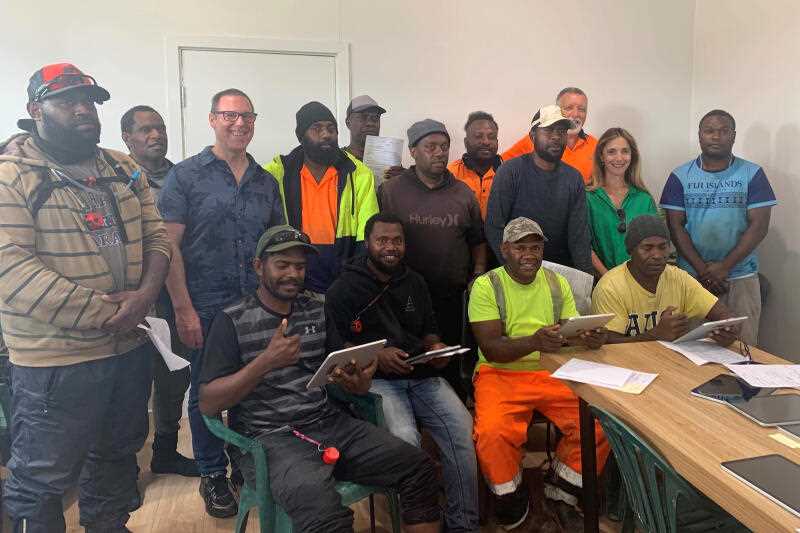Pacific workers are being urged to chase up “many millions” in lost superannuation from their stints in Australia, with that problem also leading to calls for reform.
Difficulties navigating Australia’s complex tax system, particularly for foreigners, mean Pacific Australia Labour Mobility (PALM) workers often leave their hard-earned super languishing.
During a nine-month stint in Australia at the guaranteed base wage levels, PALM workers typically accumulate around $3,800 in pre-tax superannuation.
Like other guest workers, PALM workers can apply to access those funds once they’ve left the country, but most either do not – or can not.

“PALM workers are collectively leaving many millions of dollars in superannuation unclaimed,” Robert Whait, University of South Australia senior lecturer told AAP.
The PALM scheme has expanded in recent years to average around 30,000 workers from 10 Pacific nations in Australia at any one time, doing jobs that employers cannot fill.
Industries includes agriculture and food processing, but also aged care, hospitality, tourism, and even a pilot in early childhood education.
Dr Whait manages the UniSA tax clinic, which offers advice “to help vulnerable Australians with their taxes”, and on the foreign affairs department’s suggestion, widened to take in PALM workers.
“PALM workers have the same rights we do … but the main issue is that under the current law, they can only access that superannuation when they leave Australia and their visa is canceled,” he said.
“Either they’re not aware of it, or the process to put in the forms is difficult because of various barriers, so lots of money is left unclaimed which they could be taking home with them to use, directly with their families and helping out their lives.”
Barriers include the unavailability of key forms in languages other than English, the reliance on internet and computer access, and verification.
PALM workers also get slugged with extra taxes that effectively claw back half of their earnings: the 15 per cent tax on contributions and a 35 per cent “departing Australia superannuation payment” tax.
The messy situation has led Dr Whait, with Connie Vitale from Western Sydney University, to author a paper looking at policy reforms, especially given super primarily exists to fund the retirement of Australian workers.
Options canvassed include adding super into their take-home pay (as occurs in New Zealand) or sending it to a super fund in the worker’s home country, either as they earn, or when they head home.
Dr Whait believes the latter options would better serve the primary of purpose of super – to assist workers in retirement – and allow Pacific super funds greater pools of funding to invest at home.
“The money from PALM superannuation could be used to help infrastructure in their countries and help their communities, so that was probably the tipping point in in recommending that approach,” he said.
Written by: Ben McKay (AAP)


Comments are closed.